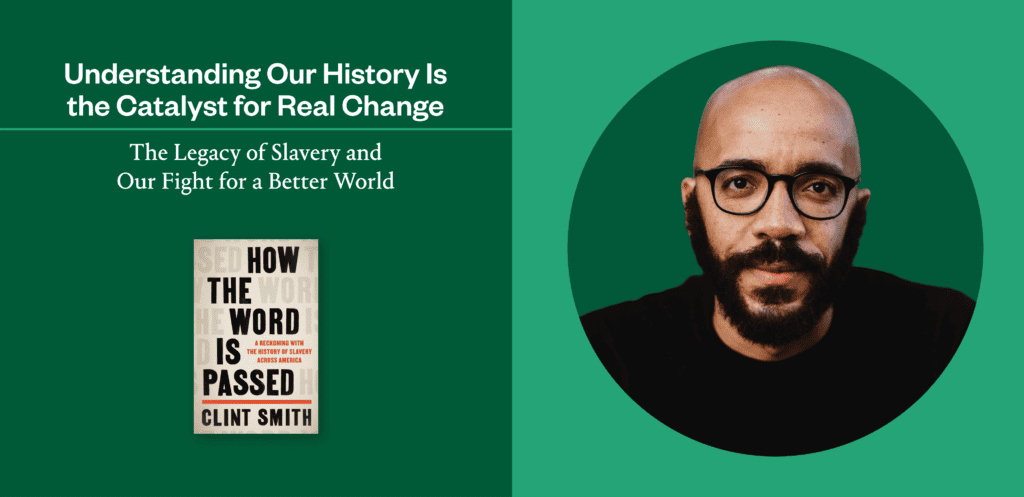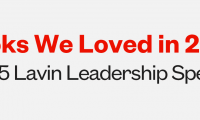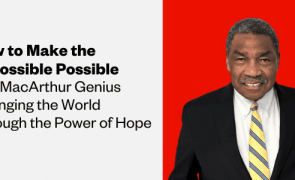“Clint Smith moves seamlessly between past and present, revealing how slavery is remembered and misremembered—and why it matters.” — Matthew Desmond, Pulitzer Prize-winning author of Evicted
“We talk about slavery as if it was this thing that existed when the dinosaurs were around,” says Clint Smith, a staff writer for The Atlantic. “But there are people alive today who knew, loved, and were raised by people who were born into chattel slavery.”
For his acclaimed #1 bestseller How the Word Is Passed, Clint travelled across the country to eight landmarks in the United States and one abroad to investigate how each tells the story of its relationship with slavery. Through vivid reporting and fascinating interviews at sites like Thomas Jefferson’s Monticello Plantation and a cemetery for Confederate soldiers, he shows us how the marks of slavery continue to shape the physical world around us—and how we can start telling a more truthful story for the future.
How the Word Is Passed is a “beautifully written, evocative, and timely meditation on the way slavery is commemorated in the United States” (Pulitzer Prize-winning author Annette Gordon-Reed). It “deftly connects the past, hiding in plain sight, with today’s lingering effects” (NPR) and “frees history, frees humanity to reckon honestly with the legacy of slavery” (Ibram X. Kendi, How to Be an Antiracist).
“There are people who would prefer that we don’t tell these stories, because they don’t want to have to tell different stories about themselves,” Clint tells Lavin. “But that’s part of what it means to be human: who we understood ourselves to be 10 years ago is different than who we understand ourselves to be now. And that’s not something to be scared of. That’s a chance that we’ve been given—to constantly become a better, more thoughtful version of ourselves. And engaging with history represents a real opportunity to do so.”
Watch an exclusive Lavin interview with Clint: “Monuments are not the endgame. Monuments are symbols that reflect the stories that communities and countries are telling about themselves.”
















